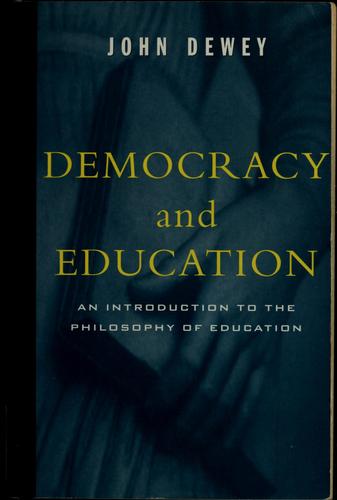
Democracy and Education
Author: John Dewey • 📚 Books
Three-Sentence Summary
- "Democracy and Education" by John Dewey explores the relationship between democracy and the educational system, emphasizing the importance of education in creating active and engaged citizens.
- Dewey argues that education should be tailored to develop critical thinking skills, problem-solving abilities, and a sense of community responsibility.
- The book delves into the role of schools in shaping democratic societies and advocates for a student-centered approach to learning.
Extended Summary
"Democracy and Education" delves into the intersection of democracy and the educational system, as John Dewey argues that education is essential for fostering active participation in democratic societies. Dewey emphasizes the need for an educational system that goes beyond rote learning and memorization, instead focusing on cultivating critical thinking skills, problem-solving abilities, and a sense of social responsibility. He believes that schools play a crucial role in shaping citizens who are capable of contributing meaningfully to a democratic society.
Dewey's philosophy centers around experiential learning, where students actively engage with their environment to construct knowledge. He advocates for a curriculum that is relevant to students' lives and encourages them to apply their learning in real-world contexts. By promoting hands-on experiences and collaborative activities, Dewey believes that education can prepare individuals to become informed, empathetic, and participatory members of society.
Throughout the book, Dewey highlights the importance of adapting education to meet the needs of a changing world. He critiques traditional educational models that prioritize passive learning over active engagement, arguing that such approaches hinder students' ability to think critically and adapt to new challenges. Instead, he proposes a student-centered approach that values individual interests, experiences, and abilities.
"Demanding as it does freedom in observation upon nature," Dewey writes," [education] demands scientific method; demanding as it does self-control within social life." This quote encapsulates his belief in the symbiotic relationship between education and democracy. By fostering curiosity, inquiry, and collaboration within educational settings, Dewey envisions a society where individuals are empowered to participate fully in civic life.
Key Points
- Education plays a vital role in creating active citizens who can contribute meaningfully to democratic societies.
- Dewey advocates for an experiential learning approach that emphasizes critical thinking skills and social responsibility.
- The book critiques traditional educational models that prioritize passive learning over active engagement.
Who Should Read
Ideal readers for "Democracy and Education" include educators, policymakers, students of philosophy or political science, and anyone interested in exploring the connection between education and democracy. This book is valuable for those seeking insights into how education can shape individuals' civic engagement and foster democratic values.
About the Author
John Dewey (1859-1952) was an American philosopher, psychologist, educator, social critic, and reformer who is considered one of the most prominent figures in modern educational theory. He was a leading proponent of pragmatism as well as instrumentalism – two key philosophical movements – which greatly influenced his views on education.
Further Reading
- The John Dewey Society
- Books by John Dewey:
- Related Books: